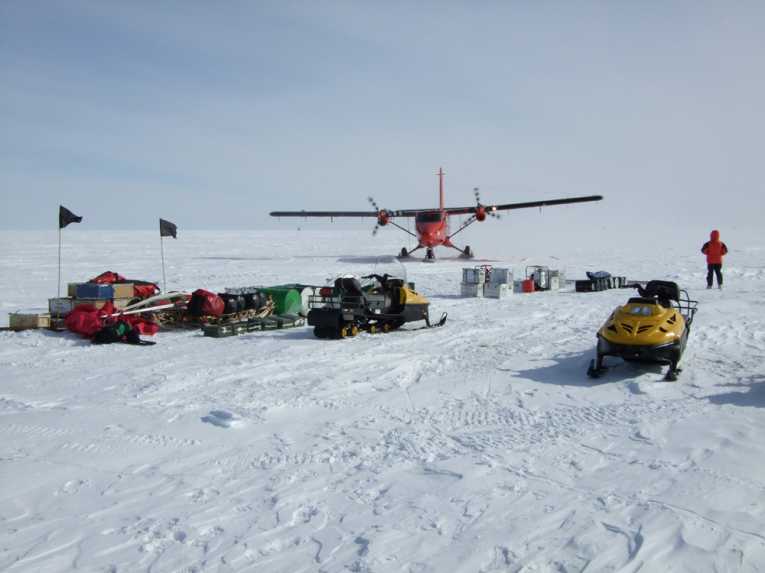A hidden cache of invaluable information found deep below an Antarctic glacier sounds like a plot device for a novel, but in reality its retrieval is the objective of a team from the British Antarctic Survey (BAS). These engineers are not looking for a memory stick or government report, they are heading out to extract a sediment core and samples from a body of water a huge distance below the surface. Between the team and the lake they will face the daunting obstacle of over 3 km of glacial ice. They will be carrying out this work after first getting the drilling, sampling and extraction equipment from the UK to Lake Ellsworth, just under 16,000 km away.
As you can probably imagine, this task is a major undertaking and will take time. The first team of four engineers will prepare the site and the equipment in the coming weeks. A second, larger team of engineers and scientists will follow in their footsteps to carry out the extraction in a year's time.

British camp deep field, Lake Ellsworth (Credit: © Neil Ross / University of Edinburgh)
The existence of lakes such as Ellsworth, kept apart from the world above by the ice, has been known for years and the potential goldmine of information has often been speculated on. However, it is only recently that humanity has had the technology to reach down to this depth while avoiding contamination of the samples. Technologies used in space exploration are being used to keep both the samples and the lake free from unwanted contamination.
The theories about what might be found down there are diverse, but whatever is found will be valuable to researchers. Sediment samples can provide a record of climate change and help us to understand the natural processes that can be involved in such a change. Microbial life will give scientists new perspectives on evolutionary pressures, evidence of past life would do the same and even an absence of life would reveal interesting clues to the parameters in which life is possible.
So, unless the project fails to obtain any useful samples, this adventure may provide more excitement for the researchers than the latest bestseller could ever manage.










